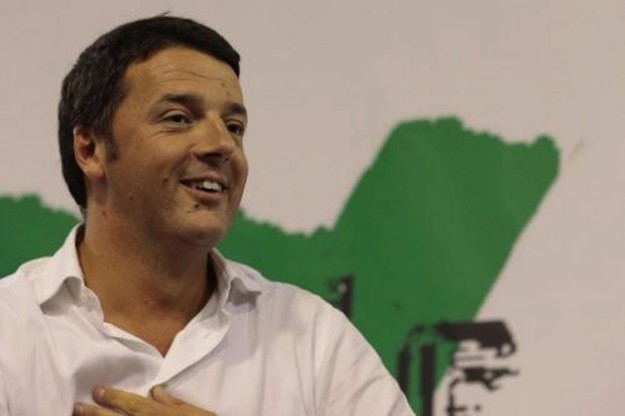This note is dedicated to Matteo Renzi’s quest for power, and to the options he will face in the coming weeks.
1. Several institutional investors’ baseline story is that Matteo Renzi will rise as the leader of the PD and lead his party to victory in Spring 2014. This narrative focuses on Renzi’s unhidden ambitions to not only run a party, but to lead the country as well. As we write this note, Renzi has several opportunities to build on his momentum. Indeed, the government is very weak as the Financial Stability bill comes under heavy shelling in Parliament, and both Letta and Saccomanni are seen as incapable of delivering effective economic policies. So far, the government’s emphasis has been mainly on tax increases, whereas state expenditure czar and former IMF senior executive Carlo Cottarelli has taken office just a few weeks ago. Moreover, several dates on the political calendar are circled in red. Next week’s highlight will be Silvio Berlusconi’s impeachment vote in the Senate (scheduled for November 27), while the Constitutional Court will start its review of the current electoral law on December 3. One week later, on December 8th, the PD will hold its primary contest, which will be open also to PD non-members.
2. Renzi is stating publicly that, starting from December 9th, Enrico Letta’s agenda will have to change. How likely is this? In Policy Sonar’s view, a preliminary question to ask is whether Matteo Renzi wants to be the “main shareholder” of the government, or he actually wants to go to elections. A third option – claiming a couple of key posts in Letta’s cabinet – may not be tactically wise, as Renzi would associate himself closely with the Letta government and thus lose the possibility to criticize it. In fact, terminating this government may not be difficult, but winning elections with a large majority and running the country may prove a different story. Moreover, Renzi will have to consider some key elements.
3. The first element is that governing the country is a very tough job, and even battle-hardened executive branch veterans find it difficult to master the nitty-gritty of the executive branch. A very close friend of Head of State Giorgio Napolitano, Emanuele Macaluso, emphasized this concept in an interview with the Italian daily La Stampa on November 24th, saying he seriously doubts that “Renzi has the skills needed to run the country alone”.
Moreover, on one hand, there is very little money left to spend, as shown by Enrico Letta’s awfully embarrassing decision to take away 150 million euros from the Turin-Lyon TAV line after having pledged to complete the project just one week ago at the Italy-France bilateral talks. On the other hand, the amount of taxes levied on households and companies is already record-high.
4. Quite interestingly, Renzi’s shadow cabinet remains largely unknown. While domestic media are full of portraits of Renzi’s inner circle and last-minute recruits, it is not clear who would be his Minister of Economy if he were to serve as premier. Would it be the former McKinsey partner and Israeli-born Yoram Gutgeld? Or would it be the former ECB executive board member and Italian Treasury veteran Lorenzo Bini Smaghi? Or Davide Serra, the flamboyant London-based financier? Or the former director general of industrialist lobby Confindustria and Bank of Italy veteran Giampaolo Galli? Even more importantly, it is unclear who would be Renzi’s pick for the mighty civil service’s machinery – a highly sensitive job, given the need to hit the ground running.
5. An other key element is that, as the government in Rome tries to raise cash through privatizations, also local entities (municipalities, provinces or regions) will have to consider selling many of their assets. This, in turn, may result into dissatisfaction and opposition if not outright violence. Moreover, this will be particularly testing for the PD, i.e. Matteo Renzi’s party, since the PD runs the vast majority of Italy’s municipalities. Moreover, movements like the M5S will seize the opportunity to ride the wave of indignation. Some of this is already happening as we write this note. For instance, Italy‘s sixth-largest city, Genoa, was facing Saturday the fifth straight day of a wildcat public transport strike that has paralyzed traffic and evoked comparisons with “Greek-style” labour unrest. The strike started Tuesday, days after the city council passed a bill pledging to fix loss-making local services, including bus company AMT. Its 2,400 workers took to the streets fearing privatization, even if mayor Marco Doria has ruled it out. Whoever runs the country will have to manage this kind of tensions, so Renzi may prefer Enrico Letta to act as “cleaner” before entering the competition for the premier’s office himself.
6. In Policy Sonar’s view, it will be possible to have a more accurate idea of Matteo Renzi’s actual intentions as the electoral reform discussion starts in Parliament (probably Tuesday next week) and the government unveils its plans. Renzi’s so far unspecific reform proposal goes under the name Mayor of Italy, that is, an electoral law where – in Renzi’s own words – “you know who won”. If Matteo Renzi’s proposal is seen as aligned with the government’s one, this may signal a truce. If not, this means war.
Francesco Galietti, CEO
Letizia Zingoni, COO








